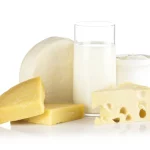What Happens If You Take Sucralfate With Food?

Sucralfate is in a class of medications called protectants. It sticks to damaged ulcer tissue and protects against acid and enzymes so healing can occur.
Sucralfate is used to treat and prevent the return of duodenal ulcers (ulcers located in first part of the small intestine). Treatment with other medications, such as antibiotics, may also be necessary to treat and prevent the return of ulcers caused by a certain type of bacteria (H. pylori)
How it works
The exact way sucralfate works is not known; however, research shows it forms a film with albumin (a protein) exuded from the ulcer site. This film acts as a barrier to gastric acid, pepsin (one of the main digestive enzymes), and bile salts.
How should Sucralfate be used?
Sucralfate comes as a tablet and liquid to take by mouth. If you are taking sucralfate to treat ulcers, the tablets or liquid usually are taken four times a day. If you are taking sucralfate to prevent an ulcer from returning after it has healed), the tablets usually are taken twice a day.
Take sucralfate on an empty stomach, 2 hours after or 1 hour before meals. Take sucralfate around the same times every day. Follow the directions on your prescription label carefully, and ask your doctor or pharmacist to explain any part you do not understand. Take sucralfate exactly as directed. Do not take more or less of it or take it more often than prescribed by your doctor. Shake the liquid well before each use to mix the medication evenly.
This medicine must be taken regularly to be effective. It may take up to 8 weeks for ulcers to heal.
What happens if you take sucralfate with food?
When sucralfate is taken with food, the medication will not work effectively and the ulcer will not be properly managed or heal. Internal bleeding is the most common complication of stomach ulcers. It can occur when an ulcer develops at the site of a blood vessel. The bleeding can either be: slow, long-term bleeding, leading to anaemia – causing fatigue, breathlessness, pale skin and heart palpitations (noticeable heartbeats).
It is important for you to take sucralfate on an empty stomach so that it can easily form the complex that binds to protein-rich exudate found on the surface of ulcers. It binds to albumin and fibrinogen preventing blood clot lysis by stomach acid (hydrochloric acid).
When sucralfate is taken on an empty stomach, it increases the tissue levels of fibroblast growth factors and epidermal growth factors, leading to an increase in prostaglandins at the gastrointestinal tract lining, which promote the healing of gastrointestinal ulcers.
However, it is also important to note that sucralfate does not undergo any significant oral absorption, but resides in the GIT for a considerable length of time. The unabsorbed sucralfate can alter the pharmacokinetics of the oral drugs by impeding its absorption and reducing the oral bioavailability.
What are side effects associated with using sucralfate?
Side effects of sucralfate include:
• Back pain
• Constipation
• Diarrhea
• Dizziness
• Drowsiness
• Dry mouth
• Gas (flatulence)
• Headache
• Indigestion
• Itching or skin rash
• Nausea
• Sleep problems (insomnia)
• Spinning sensation (vertigo)
• Stomach pain
• Upset stomach
• Vomiting
Other side effects of sucralfate include:
• Bezoars formation
• Gastrointestinal discomfort
Postmarketing side effects of sucralfate reported include:
• Hypersensitivity reactions
• High blood sugar (hyperglycemia)
This document does not contain all possible side effects and others may occur. Check with your physician for additional information about side effects.
What other drugs interact with sucralfate?
If your doctor has directed you to use this medication, your doctor or pharmacist may already be aware of any possible drug interactions and may be monitoring you for them. Do not start, stop, or change the dosage of any medicine before checking with your doctor, health care provider, or pharmacist first.
Severe Interactions of sucralfate include:
• None
Serious Interactions of sucralfate include:
• dolutegravir
Moderate Interactions of sucralfate include:
• ciprofloxacin
• fleroxacin
• furosemide
• gemifloxacin
• ketoconazole
• levofloxacin
• moxifloxacin
• norfloxacin
• ofloxacin
• vitamin D
Mild Interactions of sucralfate include:
• aluminum hydroxide
• anagrelide
• demeclocycline
• ethotoin
• fosphenytoin
• lansoprazole
• lymecycline
• minocycline
• oxytetracycline
• phenytoin
• tetracycline
• warfarin





